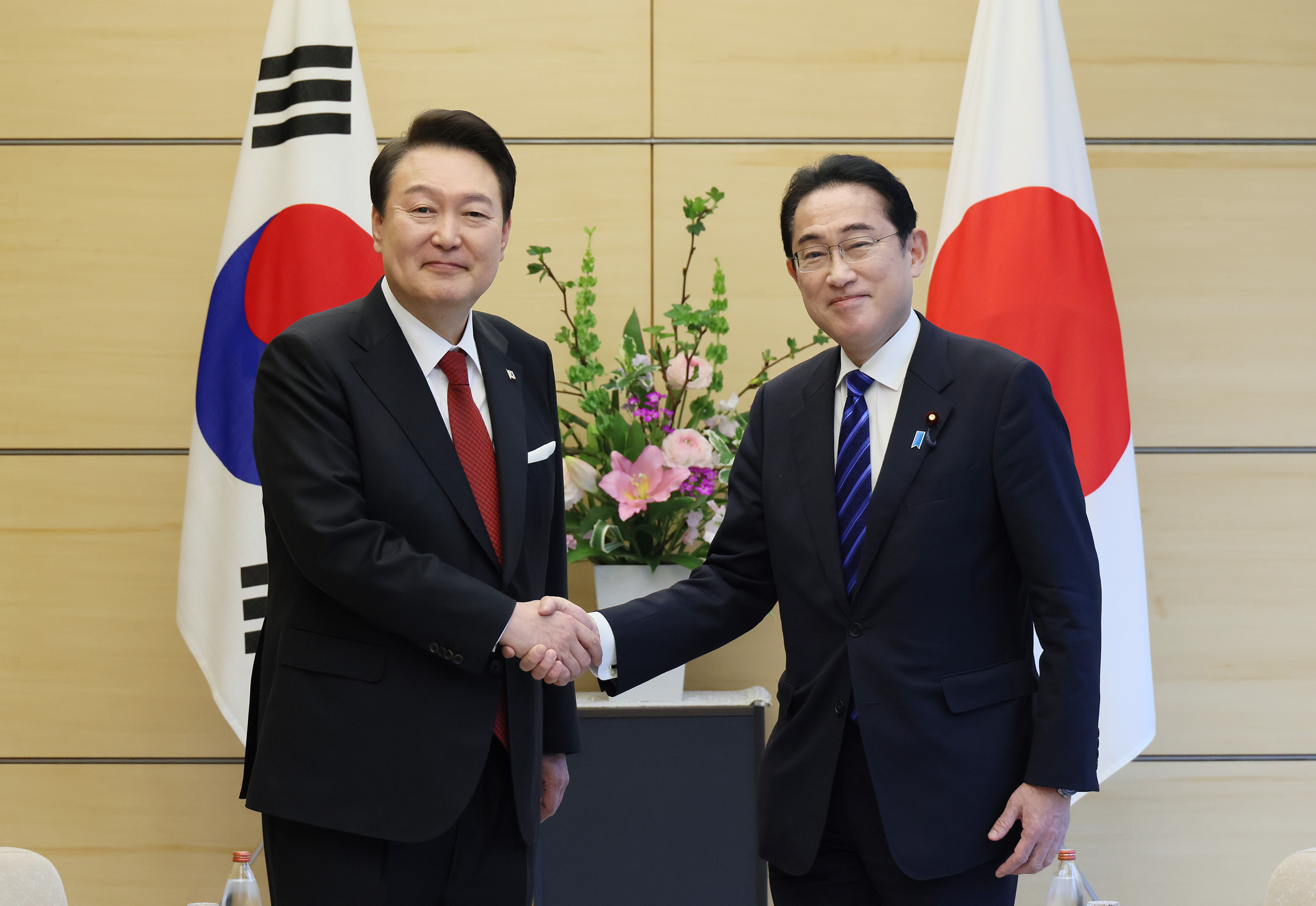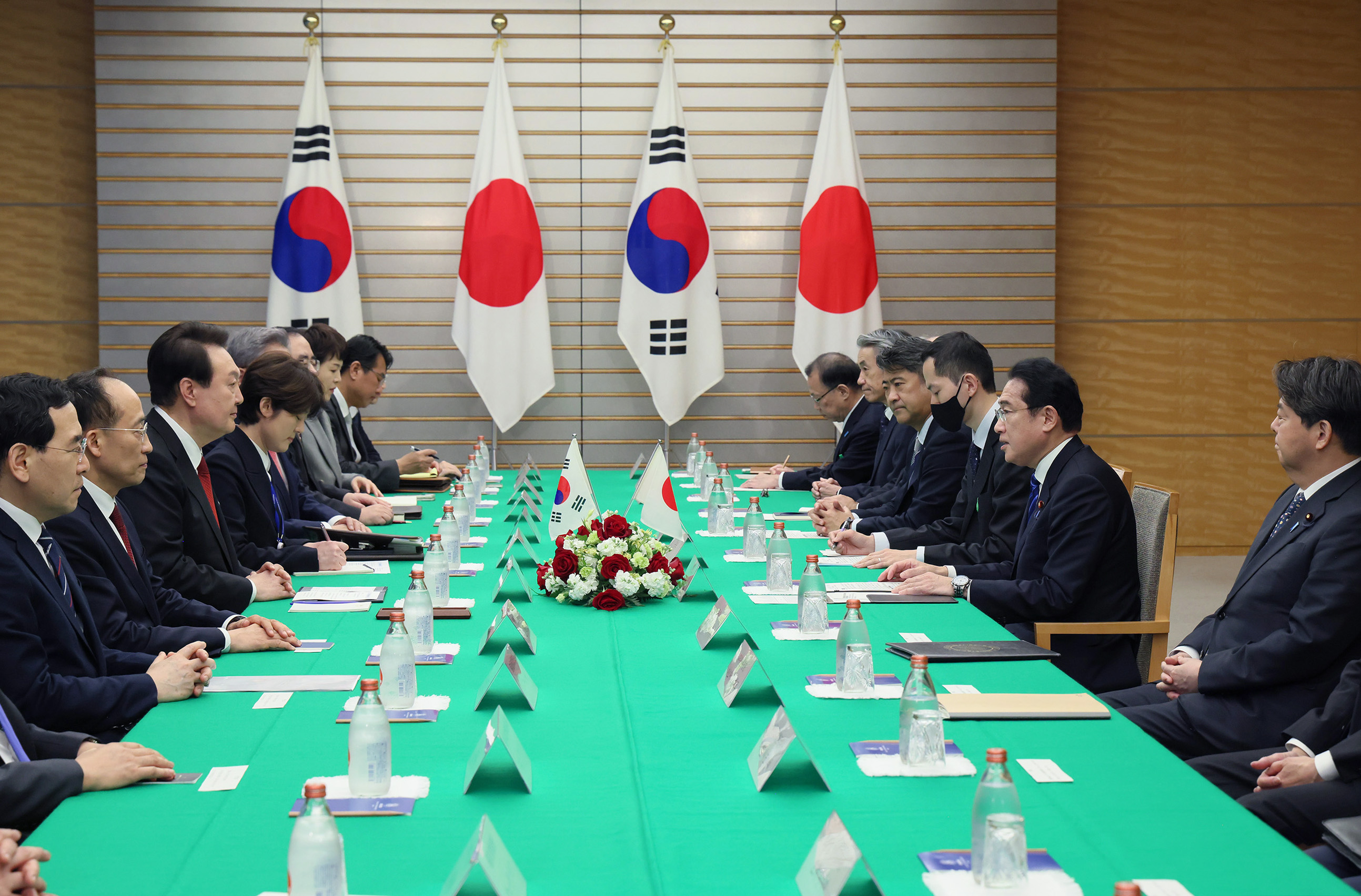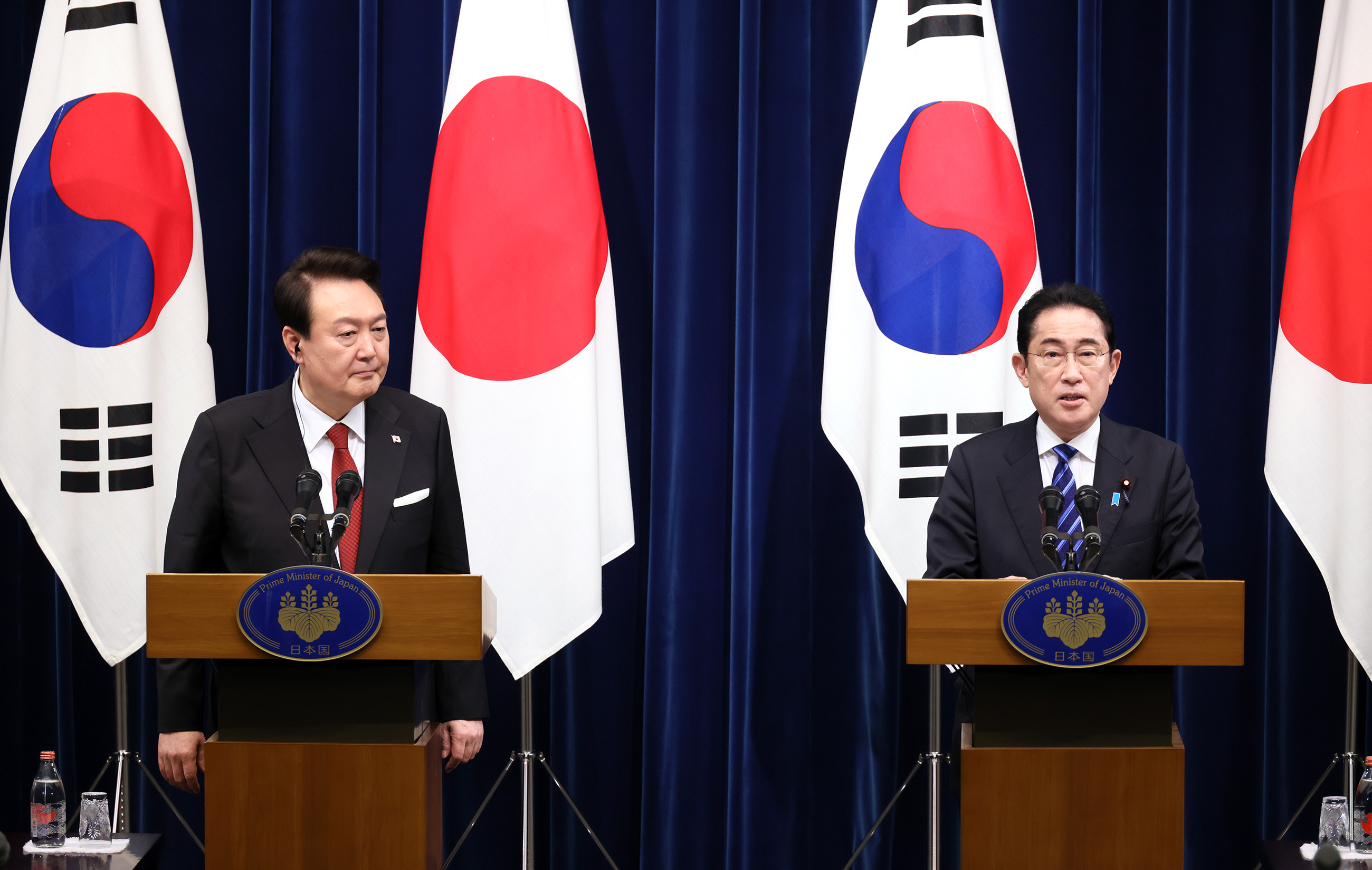Japan-ROK Summit Meeting (Summary)
March 16, 2023
[Provisional translation]
On March 16, commencing at 4:50 p.m. for approximately 85 minutes, Mr. KISHIDA Fumio, Prime Minister of Japan, held a summit meeting with H.E. Mr. YOON Suk Yeol, President of the Republic of Korea. The summary of the meeting is as follows (The small-group meeting commenced at 4:50 p.m. and lasted for approvimately 25 minutes; the plenary meeting commenced at 5:15 p.m. and lasted for approvimately 60 minutes.).
1. At the beginning, Prime Minister Kishida expressed his heartfelt welcome to President Yoon's visit to Japan, and stated that he was delighted to have the opportunity to open a new chapter of Japan-ROK relations for the future together with President Yoon. The two leaders shared the view that enhancing Japan-ROK relations was an urgent task in the current strategic circumstances, and that they would further advance the relationship based on the platform on which their friendly and cooperative bilateral relations had been built since the normalization of diplomatic relations.
2. The two leaders agreed on the resumption of "shuttle diplomacy," in which both leaders frequently visit each other without being bound by formality.
3 .Regarding the issue of former civilian workers from the Korean Peninsula, the two leaders had a candid exchange of views and Prime Minister Kishida made remarks in line with the position announced by the Government of Japan on March 6.
4. In order to promote cooperation mutually beneficial for Japan and the ROK, the two leaders agreed to activate communication between their governments in a wide range of fields, including politics, economy, and culture. Specifically, the two leaders agreed on the importance of early resumption of the Japan-ROK Security Dialogue and the Japan-ROK Vice-Ministerial Strategic Dialogue, as well as early restart of the Japan-ROK-China trilateral process at high level. The two leaders also agreed to launch a bilateral consultation on economic security in order to resolve issues that both Japan and the ROK face, such as making supply chains more robust and tackling leaks of sensitive technologies. Furthermore, they welcomed the progress made in the area of export controls.
5. Prime Minister Kishida expressed his expectation that the virtuous cycle of improving relations would be further accelerated by invigorating people-to-people exchanges between the two countries. He stated that the Government of Japan would support exchanges among youth who would lead the future through JENESYS (Japan-East Asia Network of Exchange for Students and Youths) Program. In addition, the two leaders welcomed the announcement by economic organizations of both countries to establish “the Japan-ROK/ROK-Japan Future Partnership Fund” for future-oriented Japan-ROK cooperation and exchange, taking the opportunity of President Yoon's visit to Japan.
6. The two leaders also exchanged views on the necessity to promote strategic coordination under the current severe security circumstances in the region. With regard to their response to North Korea, the two leaders strongly condemned the launch of an ICBM-class ballistic missle by North Korea this morning and agreed to further advance the deterrence and response capabilities of the Japan-U.S. alliance and the ROK-U.S. alliance in light of North Korea's recent intensification of nuclear and missile activities. They also agreed on the importance of advancing Japan-ROK bilateral and Japan-ROK-U.S. trilateral security coordination. In addition, regarding the abductions issue, President Yoon reiterated his support for Japan.
7. In addition, the two leaders confirmed the importance of realizing a free and open Indo-Pacific at this turning point in history, and shared the view that like-minded countries should work together to uphold a free and open international order based on the rule of law.
8. The two leaders also exchanged views on the situation in Ukraine, and agreed that Russia's aggression against Ukraine was an attempt to unilaterally change the status quo by force, and that such an outrageous act should not be tolerated anywhere in the world, including East Asia.
9. The two leaders agreed to continue to communicate with each other.


